At Worcester event, lieutenant governor candidates address issues in human services sector
- Oops!Something went wrong.Please try again later.
- Oops!Something went wrong.Please try again later.
- Oops!Something went wrong.Please try again later.
- Oops!Something went wrong.Please try again later.
WORCESTER — Five Democratic candidates for lieutenant governor took on several questions relating to the human services sector during a forum in Worcester Monday.
Candidates Bret Bero of Boston, Salem Mayor Kim Driscoll, state Rep. Tami Gouveia of Acton, state Sen. Adam Hinds of Pittsfield and state Sen. Eric Lesser of Longmeadow took part in a forum hosted by the Providers’ Council, a statewide association of community-based human services organizations. The forum was held at the Beechwood Hotel.
To start the forum, the candidates were asked to give their personal experience with human services.
Bret Bero of Boston
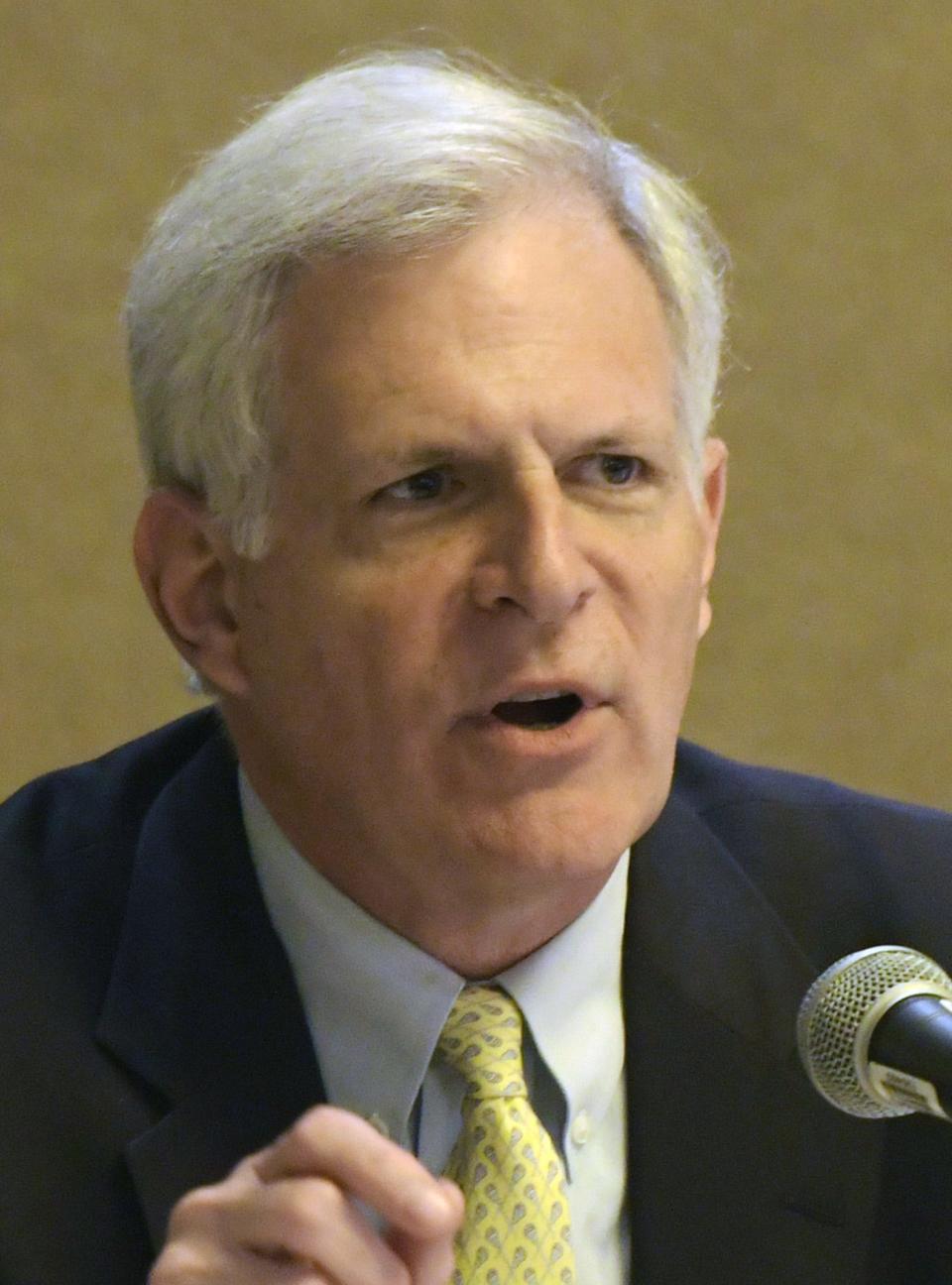
Bero, a Babson College professor with experience in the business world, said that he served on the board of an addiction and trauma recovery center for the better part of a decade and had family members who struggled with their mental health. In his work on the board, Bero said that he realized many of the issues in the field do not have clear, scientific solutions.
"I came to know the fact that there are a whole host of problems (in human services), and they don't present usually as a single item," Bero said. "Once you have one sort of issue, it starts to spiral and have several issues."
Bero said he is in favor of experimenting with potential solutions such as facility recidivism.
Salem Mayor Kim Driscoll
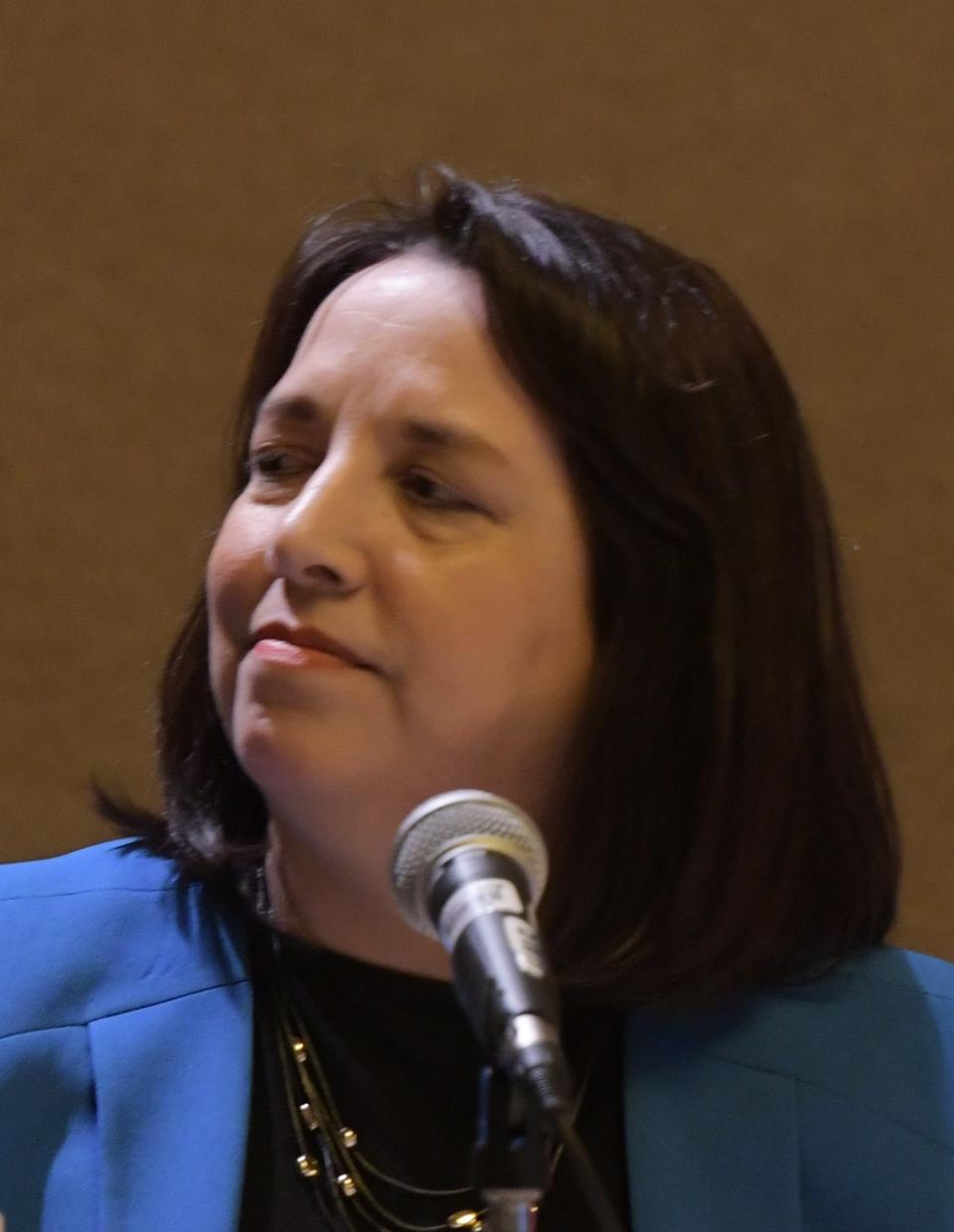
Driscoll said during her time as mayor of Salem and as deputy city manager of Chelsea, that she has seen what it can look like when services fail residents.
"I really value what you're doing and I want to be a key partner," Driscoll said to a crowd of representatives of the human services industry.
Tami Gouveia of Acton
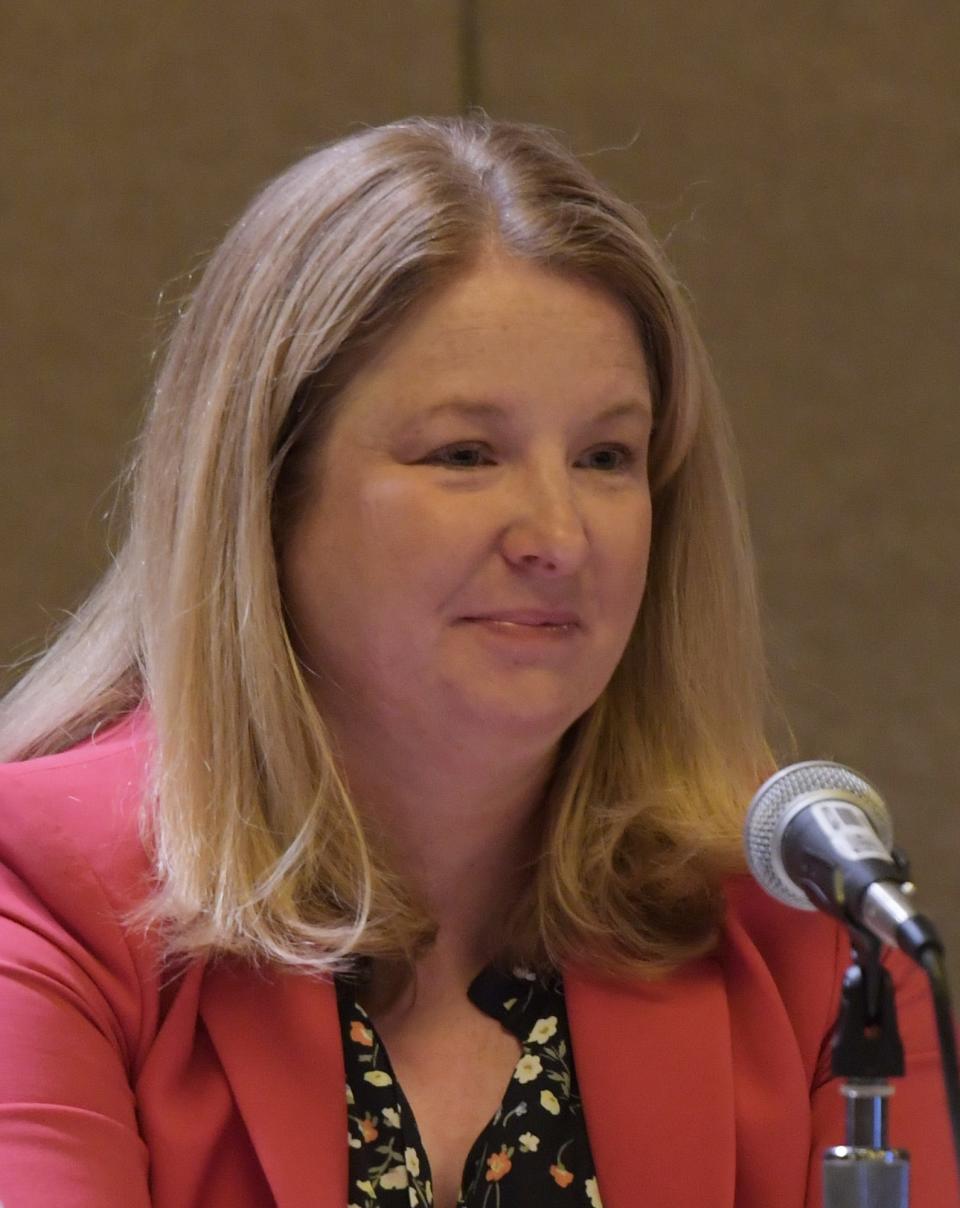
Gouveia grew up in Lowell with an alcoholic grandfather and would accompany her mother to drop him off and pick him up from a detoxification clinic, she said.
"(I'll) really focus on health, wellbeing and dignity in the ways that we are responding to our crises and making sure that the workforce exists to support the needs of the 700,000 residents in the state of Massachusetts that rely on the work that you all do," Gouveia said.
State Sen. Adam Hinds of Pittsfield
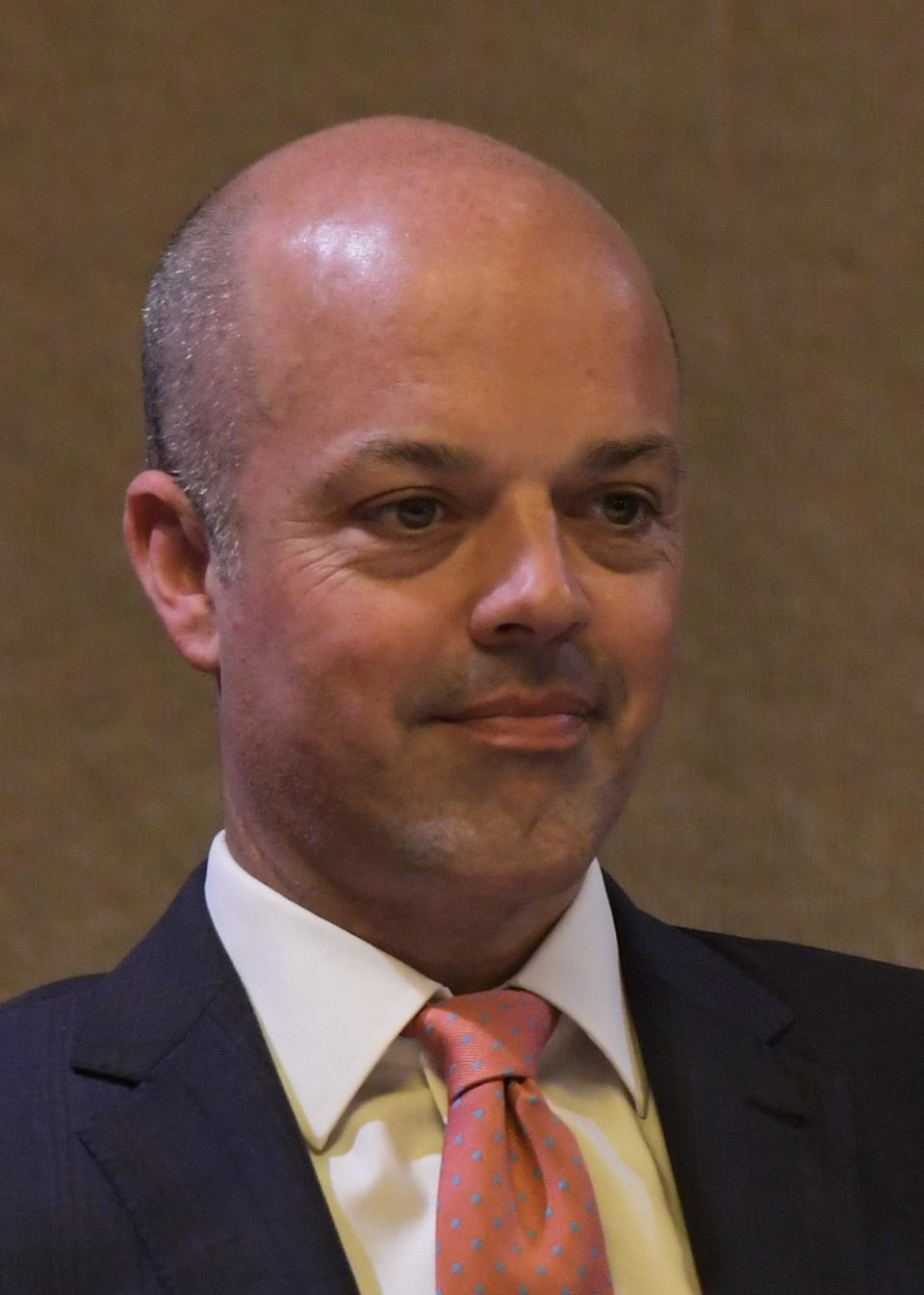
Hinds led human services organizations in Berkshire County before joining the Senate. He said he knows both sides of requesting action from the state for the industry, which has been growing in the state.
"(I understand) doing it from both sides of the table to really understand the critical shifts that are happening in the industry," Hinds said.
Sen. Eric Lesser of Longmeadow
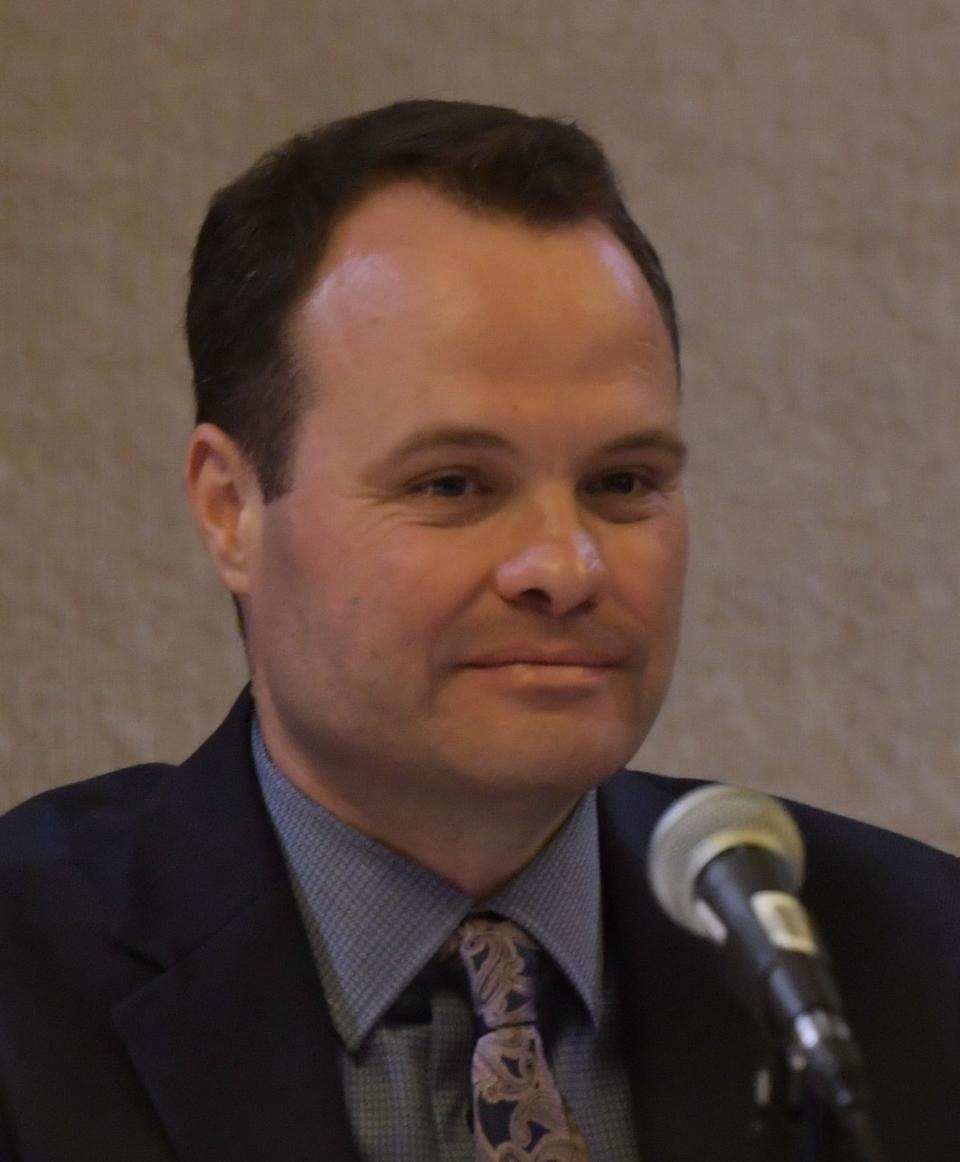
Lesser said his family is deeply involved in the human services industry including both of his parents, his sister and mother-in-law.
"I hope we talk today about how a lieutenant governor in particular, how state government work to lift up your field and work to get more resources, particularly around reimbursement, training and pay for your workforce," Lesser said.
Plan for staffing issues
The candidates were then asked if they have a specific plan for staffing issues if the desired funding for human services staffing does not materialize.
Bero said the matter is a question of whether the state will make investments in having more resources. He suggested the state start funding colleges for people who are in the human services fields as a long-term plan.
Driscoll drew applause by saying that it is time to raise Chapter 257 rates — reimbursement rates for human and social services. She said that businesses in communities like Salem cannot compete with such a high number of job vacancies.
"We are at a time when we have historic resources. This has to be a priority. We'll have the opportunity to do that hopefully this year," Driscoll said.
Gouveia said that the resources already exist in the state, but that they are not being used properly and all families and businesses are not being taxed in ways necessary to make critical investments.
"We do have to get together the political will to make these critical investments because I believe that we will not be able to get our economy back on track and keep it on track if we don't invest in our people," Gouveia said.
Hinds also said that Chapter 257 rates need to be adjusted. He said that the state needs to use this moment of historic funding to take on the issues of equity in the state. Loan repayment and creating debt-free college in Massachusetts are other tools to address the issue.
Lesser said the state needs to do a better job valuing the human services field. He used an example of a student loan repayment proposal for human services workers on the state's American Rescue Plan Act funding bill that he championed as an example of such efforts to support the industry.
"It's a disgrace that in one of the wealthiest, most progressive, or at least progressive in air quotes, states in the country, we have people leaving the professions at all of your agencies to go work at Dunkin' Donuts or Starbucks because it pays more," Lesser said.
How to handle NIMBY attitudes
Next, the candidates were asked how to get buy-in from community members for establishing human services institutions in certain areas where a "not in my backyard" attitude exists.
Bero drew from his experience in municipal committees for the town of Carlisle. He said that often the best way to accomplish such goals is through dialogue and involving residents in decision making.
"I adopted a slogan when I was in those positions, which was, 'If you want to go fast, go it alone. If you want to go far, go it together,'" Bero said.
Driscoll said the best way she believes communities can work with human services agencies is by seeing any new projects as an addition to already existing work in the community and not the doings of outsiders.
Gouveia said every resident deserves to live in thriving neighborhoods with safe housing and access to transportation as well as adequate services.
Hinds brought up his experience working on conflict negotiations for the United Nations in the Middle East and said that work informs his work in the state.
"You need everyone to come to understand why are we doing this, who are we doing this for, what are the circumstances and let's lock arms and move forward together," Hinds said.
Lesser said his district includes both some of the wealthiest and lowest-income communities in the state and he has worked through community resistance numerous times. A lieutenant governor is perfectly suited to hold dialogues across communities, cabinet secretaries and agencies to find common ground, Lesser said.
Unemployment rate of people with disabilities
The final question that the candidates were asked was how the candidates would address the unemployment rate of people with disabilities.
Bero said that the state needs to develop programs to recognize the unique skills of workers with disabilities and should be more open to different employment models.
Driscoll said that along with new programs, a scaffolding needs to be put in place to help employers understand what training is needed and what opportunities employees with disabilities present.
Gouveia said residents need more supports in order to live independently. The state also needs to work on transportation, bringing up stories of how the MBTA's RIDE program can leave people stranded.
Hinds said awareness of inclusive hiring practices is growing. He called for an audit of every state agency and organization to examine accessibility and criteria for judging applications.
Lesser said the state Senate completed a commission on the future of work. He said a key takeaway from the commission was that the potential exists for all of the new advancements in hybrid and remote work that the world experienced during the COVID-19 pandemic to create transformative opportunities for people who may have accessibility issues.
Other issues
After the forum, Bero, Hinds and Gouveia answered questions on what issues they believed were important for Central Massachusetts.
Bero, who once ran a small business in the town of Orange, said the region often gets forgotten by Beacon Hill. The economy and jobs will be major issues for the region going forward, Bero said. Bero predicted turbulent times ahead for the national and state economy and worries that small businesses could be hit.
"We can't afford to have them hit. You go through any town right now and you will see empty storefronts and you're also going to see a lot of businesses that used to exist that don't exist," Bero said.
The state needs to go deeper than spending money on supporting these communities, such as allowing outdoor dining for restaurants, Bero said.
In addition, Bero said, investing in education is a critical issue for the state. He said that education is key for residents looking to lift themselves up and needs to be promoted at all levels including pre-school, grade school and in vocational education.
Hinds said that the cost of housing is a critical issue for the region and the state at large.
"It's outrageous that in this day and age, Massachusetts is one of the most expensive places to live and the most unequal," Hinds said. "We have to get our fundamentals right, whether it's housing or investments in transportation or workforce development."
As the state Legislature deliberates major spending for the next administration, Hinds said that now is the time to ensure that every region of the state is looked after by the next administration. He said that the ticket needs regional balance so that it is not solely focused on the Boston area.
Gouveia said housing, mental health and education are key areas of focus for Central Massachusetts.
"If we have those three things and they're really functioning, we will see a stronger economy not only her in Central Mass., but in all across the commonwealth," Gouveia said.
Along with loan repayment options for students, Gouveia said debt-free higher education also needs to be pursued by the state.
Republican lieutenant governor candidates Kate Campanale of Spencer and Leah Allen of Peabody were invited to the forum, but did not participate.
This article originally appeared on Telegram & Gazette: 'Host of problems': See what the lt. gov. candidates have to say about the human services sector

